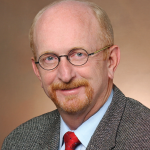ACR’s Committee on Research, chaired by E. William St. Clair, MD, will be rolling out other initiatives within the next year. One is a new conference for advanced rheumatology fellows that will be held every other year (on alternate years from the Arthritis Foundation’s Research Conference). The first conference (scheduled for next summer) will allow fellows to present new research and network with established scientists and clinical researchers.
The Committee on Research is now considering possibilities for a future REF research program to launch after the RA initiative is complete. A leading researcher, Dr. Fox will work with the committee in formulating a research agenda. “I can imagine many different possibilities which would all be exciting,” he says. “I think when you do [initiate a new direction for research], you have to be shrewd, and you need to pick a disease or a theme in which there are opportunities and scientific potential to make rapid progress. Timing is really key. I’m looking forward to seeing what the talented people in the Committee on Research will bring up.”
On the Watch List
ACR committees, such as the Quality of Care Committee, will also monitor federal initiatives, including the quality movement and pay-for-performance. “We all know that quality can be a banner for implementation of cost-cutting and reduction of payments for services,” cautions Dr. Fox. “Our members believe that we have to make sure that quality is going to make a positive difference for our patients. They don’t want to participate in quality exercises that are just excuses for withholding reimbursement.”
In that vein, the ACR has been active in the quality measures creation process with initiatives like the second ACR Quality Summit, held in September, which brought together stakeholders from the ACR, insurers, and independent agencies. (Look for a report on the summit in a future issue of The Rheumatologist.)
Finally, Dr. Fox is concerned about shortages in the rheumatology workforce, particularly the crisis of maintaining the number of strong academic rheumatology units in the country. The ACR Committee on Workforce and Training will examine how to develop a base of support for these academic units – possibly by fostering ACR–university medical center interactions – so that they can thrive.
All in all, 2008 promises to be an exciting year for the ACR. Clearly Dr. Fox sees his presidency as a collaborative venture. “It’s not as if each ACR president comes in and sets a new direction, putting a totally different agenda in place.” The process, he says, is an evolving one. “A lot of thought and teamwork has gone into any actions that we take.”



